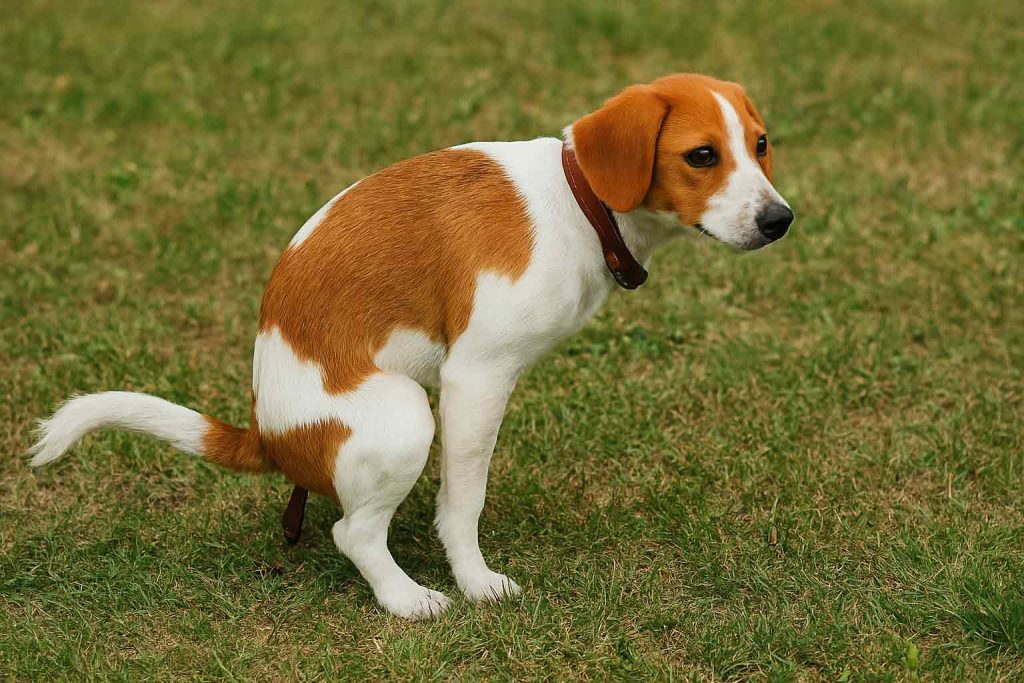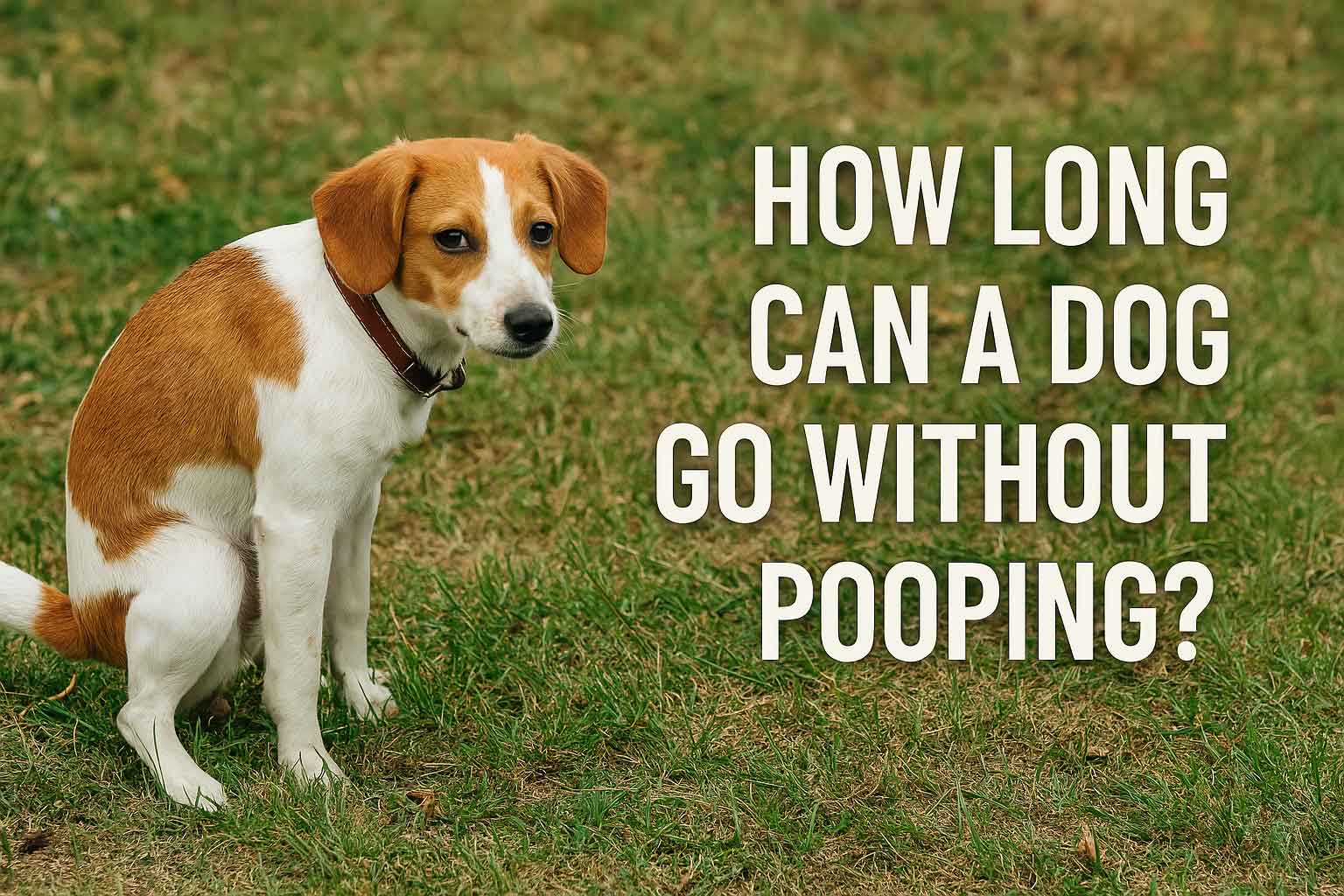How Long Can a Dog Go Without Pooping? What Every Pet Owner Should Know
As a dog owner, you’re likely familiar with your pup’s bathroom routine. But what happens when your dog skips a day—or more? It’s natural to wonder: how long can a dog go without pooping?
This is a common question, and the answer isn’t always straightforward. While most dogs should have at least one bowel movement a day, certain factors can influence this frequency. In this comprehensive guide, we’ll explore the reasons behind irregular bowel movements, when to be concerned, and how you can help get your dog back on track.
What Is a Normal Pooping Schedule for Dogs?
Typically, healthy dogs poop once or twice a day. However, several factors can influence this, including:
- Age
- Diet
- Activity level
- Health status
- Medication
- Stress levels
Puppies, for example, often poop more frequently due to their high metabolism and frequent feeding. Senior dogs may slow down, pooping less often but still on a predictable schedule.
So, How Long Can a Dog Go Without Pooping?
Most veterinarians agree that a dog can go 24 to 48 hours without pooping without it being cause for alarm. However, anything beyond 48 hours should prompt a closer look. If your dog hasn’t had a bowel movement in two days, it’s best to consult your veterinarian.
Key Factors That Affect Bowel Movements:
1. Dietary Changes
A sudden change in your dog’s food can disrupt their digestive system. Switching from dry kibble to wet food, or changing protein sources, may cause temporary constipation.
2. Lack of Fiber
A low-fiber diet is a common cause of irregular pooping. Fiber helps regulate digestion by adding bulk to stools and promoting gut motility.
3. Dehydration
If your dog isn’t drinking enough water, stool can become hard and difficult to pass. Hydration plays a key role in digestion.
4. Stress or Anxiety
Dogs are sensitive to their environments. Moving to a new home, boarding, or even a change in routine can lead to temporary constipation.
5. Lack of Exercise
Physical activity helps stimulate digestion. Sedentary dogs are more prone to sluggish bowels.
6. Medical Conditions
Underlying health issues like intestinal blockages, infections, or neurological problems can result in a dog not pooping. This is why monitoring your dog’s overall behavior is crucial.

Signs Your Dog Might Be Constipated
Recognizing the symptoms of constipation early can help prevent more serious complications. Here are signs to watch for:
- Straining or crouching without producing stool
- Hard, dry stools
- Crying or whining while trying to poop
- Lack of appetite
- Lethargy or discomfort
- Vomiting (in severe cases)
If your dog exhibits any of these symptoms and hasn’t pooped in over 48 hours, it’s time to call the vet.
When Is It an Emergency?
Constipation itself isn’t always an emergency, but it can signal a more serious problem, such as:
- A bowel obstruction from swallowing foreign objects
- An enlarged prostate (in male dogs)
- Neurological disorders
- Side effects from medications
If your dog hasn’t pooped in more than 72 hours, is vomiting, lethargic, or in obvious pain, seek veterinary help immediately.
What You Can Do at Home
Before jumping to conclusions, there are a few safe, vet-approved ways to help your dog poop naturally.
1. Hydrate, Hydrate, Hydrate
Ensure your dog has constant access to fresh water. You can also add water or low-sodium broth to their food to increase moisture intake.
2. Add Fiber to Their Diet
Fiber-rich foods like canned pumpkin (unsweetened), cooked green beans, or dog-safe bran cereal can help regulate bowel movements.
3. Increase Physical Activity
A brisk walk or play session can often stimulate bowel movements.
4. Stomach Massage
A gentle tummy rub or circular massage can help move things along in the digestive tract.
5. Try a Stool Softener (With Vet Approval)
There are pet-safe stool softeners and laxatives, but they should only be used under veterinary guidance.
What Not to Do
Avoid giving your dog human laxatives or enemas. These can be toxic or cause internal damage. Also, don’t force your dog to eat fiber-rich foods in large quantities, as it could worsen the problem.
How Diet Affects Digestive Health
Your dog’s diet plays a major role in their pooping schedule. A balanced, high-quality diet that includes adequate fiber will support regular digestion.
Ingredients That Support Digestive Health:
- Whole grains (brown rice, oatmeal)
- Vegetables (sweet potato, pumpkin)
- Probiotics (found in some commercial dog foods or supplements)
Avoid diets that are too high in fat or overly processed, as they can disrupt digestion and lead to constipation or diarrhea.
Can Dogs Go a Day Without Pooping?
Yes, dogs can occasionally go a day without pooping, especially if there’s a change in their diet, routine, or activity levels. One missed poop isn’t usually a big deal—but consistency is important. If it happens frequently, it may be worth investigating further.
How to Monitor Your Dog’s Bowel Health
Keep a Log
Note the frequency, consistency, and color of your dog’s poop. This can help you detect patterns or spot changes early.
Know What Healthy Poop Looks Like
Healthy dog poop should be:
- Firm but not hard
- Moist and easy to pick up
- Medium to dark brown
Regular Vet Checkups
Routine checkups can help catch any digestive issues before they become serious.
Final Thoughts: Don’t Panic, But Pay Attention
If you’ve been wondering, “how long can a dog go without pooping?”, the answer depends on several factors, but in general, no more than 48 hours without a bowel movement should pass without your attention.
While occasional constipation is usually nothing to worry about, persistent issues can point to a more serious underlying condition. By paying close attention to your dog’s habits, offering a balanced diet, and ensuring plenty of hydration and exercise, you can help keep your dog’s digestive system healthy.
And remember—when in doubt, your veterinarian is your best resource.
Key Takeaways:
- Most dogs should poop at least once a day.
- Going 24-48 hours without pooping isn’t uncommon, but more than that could indicate a problem.
- Common causes include diet, dehydration, stress, and lack of exercise.
- Safe home remedies include hydration, fiber, exercise, and massage.
- Seek vet help if your dog shows signs of pain, vomiting, or hasn’t pooped in over 72 hours.
By staying informed and proactive, you can ensure your pup stays happy, healthy, and regular!







